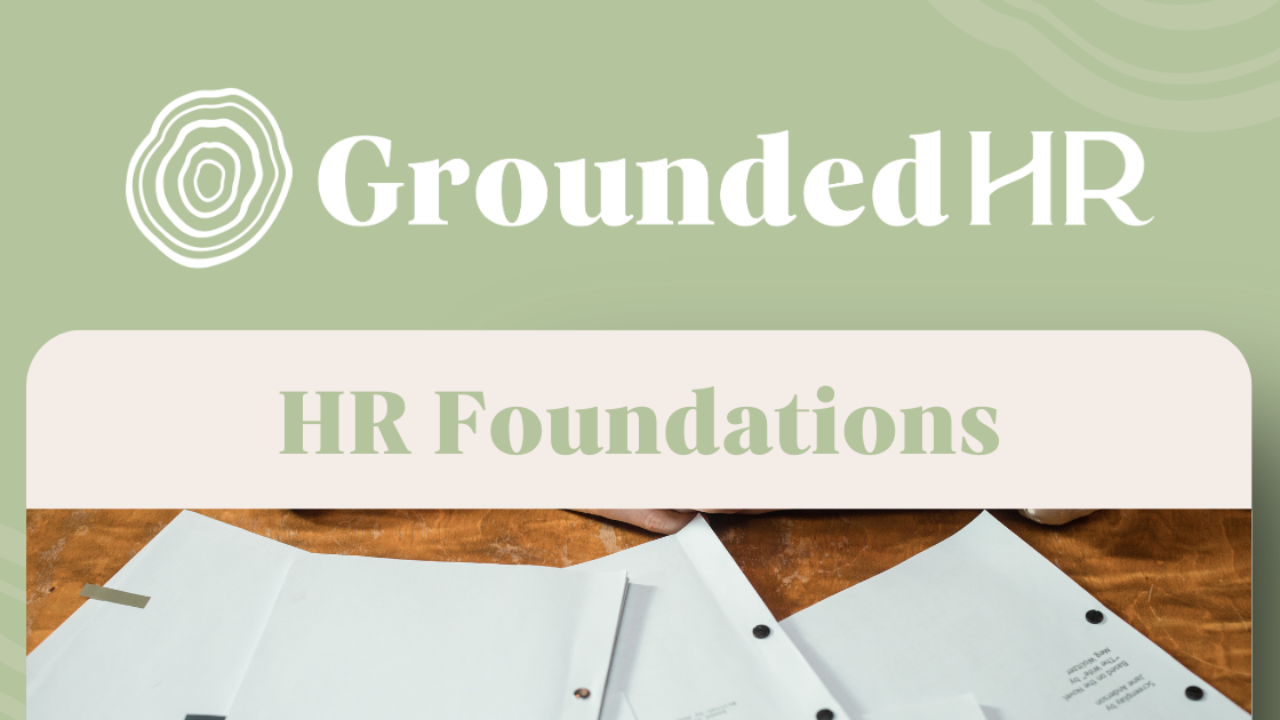HR Foundations
Aug 01, 2023
Starting and growing a small business in Australia can be both exciting and challenging. As a busy business owner in the beginning stages, you likely have numerous responsibilities on your plate. One crucial aspect that can often get overlooked is establishing a robust HR foundation. In this blog, we'll delve into why HR is essential for small businesses and how it can be a game-changer for your success.
Understanding the Employee Landscape
When it comes to building your team, understanding the different types of employees is crucial. In Australia, employees can be categorised as full-time, part-time, casual, contractors, or freelancers, each with its legal distinctions. Getting this classification right is essential to comply with employment laws.
Misclassifying employees can have serious consequences, including financial penalties and legal disputes. It's vital to correctly identify whether someone is an employee, or a contractor based on their working relationship and the nature of their work. While contractors offer flexibility, hiring employees provides more control over their work and opens the door to various rights and entitlements.
Legalities and Compliance
Navigating the intricate web of employment laws in Australia is no easy task. As a small business owner, you must be aware of your legal obligations and stay updated on any changes in legislation. Failure to comply with employment laws can result in significant legal and financial risks.
By establishing up-to-date policies and procedures that align with the law, you demonstrate your commitment to fairness and compliance. This includes having clear guidelines on areas such as leave entitlements, working hours, termination procedures, and anti-discrimination policies. Proper HR foundations not only protect your business from potential legal issues but also create a positive and secure work environment for your employees.
Financial Obligations and Responsibilities
Hiring employees comes with financial responsibilities that you need to be prepared for. Payroll management is more than just processing payroll; it involves calculating and remitting taxes, superannuation contributions, and various entitlements like sick leave and annual leave.
It's essential to adhere to minimum wage requirements and keep accurate records of working hours to avoid underpayment claims. As a small business owner, you must budget and forecast your expenses, including HR-related costs, to ensure the financial sustainability of your business.
By prioritising HR in your early stages, you can proactively manage your financial obligations and maintain compliance, avoiding potential financial strain down the road.
As you set out to build your dream business, don't underestimate the significance of HR foundations.
Creating a strong HR framework allows you to focus on your core business while ensuring compliance, managing risk, and fostering a positive work environment. At Amy Jane HR, we understand the challenges faced by small business owners like you. Our services and HR templates are designed to simplify the complexities of HR, providing you with the tools and support you need to thrive.
In the next blog, we'll explore the power of HR templates and how they can streamline your HR processes effectively. Stay tuned!

